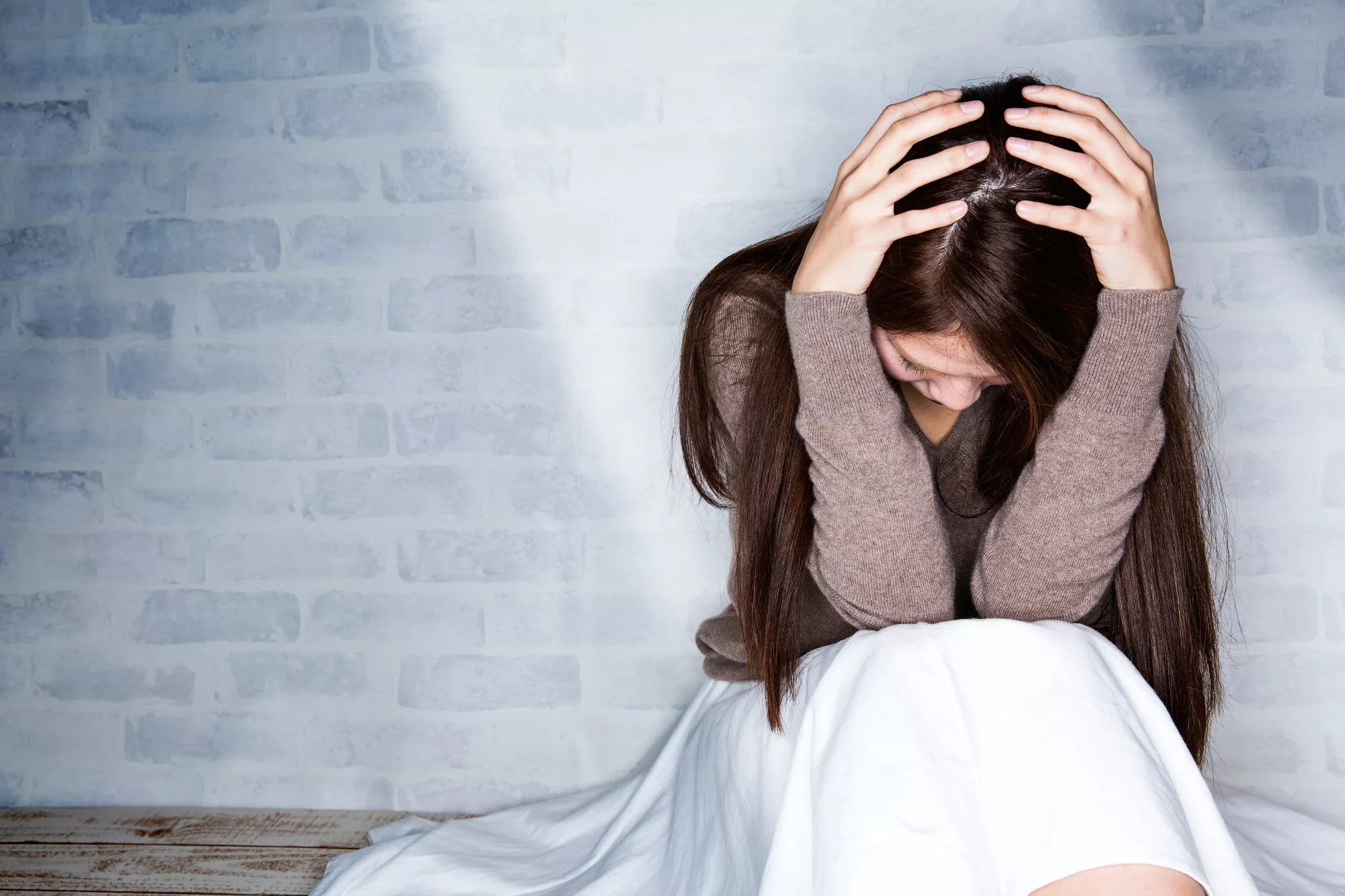Sleeping Pill Addiction
Sleeping pill addiction is a form of substance use disorder that is very common. Both prescription and non-prescription sleeping pills are used to treat certain conditions like insomnia. Misusing or overusing sleeping pills can cause several health issues, including addiction. Many people tend to overlook sleeping pill addictions, including trained doctors.
Sleeping pills are widely available and can become addictive after long-time use. Many people might find themselves unable to sleep without them. In addition to this, a large tolerance can build up over time, which can cause dangerous effects down the road.
In many cases, people become addicted without even realizing it. Withdrawal symptoms can also be seen in individuals, which only makes the addiction stronger. It is important to be aware of these signs and get help as soon as possible to avoid dangerous consequences.
Signs of Sleeping Pill Addiction
Common signs of sleeping pill addiction include:
- Intense cravings for sleeping pills
- Failed attempts to quit taking sleeping medication
- Frequent loss of memory from sleeping pills
- Seeing multiple doctors for prescription refills
- Continued use of sleeping medication, even after negative consequences
In cases of sleeping pill addiction, people unknowingly grow dependent on sleeping medication. There are a number of red flags that indicate a sleeping pill addiction. It is important to look out for these and seek medical help quickly.
A person might also continue increasing the dose of the pills without talking to a doctor. If you are concerned that a loved one or someone you know is struggling with a sleeping pill addiction, Sana Lake Recovery may be able to help.


Symptoms and Effects of Sleeping Pill Addiction
In most cases, sleeping pills are prescribed for short-term use. Sleeping pills are typically used for severe cases of insomnia and other disorders. Sleeping pills are fast-acting and should be used when needed.
However, individuals might start to take sleeping pills whenever they have trouble sleeping. Some people also use sleeping pills to cope with anxiety and stress. Using sleeping pills for anything other than what they were prescribed for is considered misuse.
Common Symptoms
High doses of sleeping pills create the same drowsy effect of other addictive drugs like benzodiazepines. These euphoric effects also produce hallucinations if the person misuses sleeping medication.
Some common symptoms of sleeping pills include:
- Dreamless sleep
- Anxiety reduction
- Dizziness
- Lack of coordination
- Hallucinations
- Lightheadedness
You should always take sleeping pills (and all other medication) as instructed by your physician. Misusing sleeping pills can cause adverse effects and addiction in the long term.

Common Prescription Sleeping Pills
There are several different types of prescription sleeping pills. They are used to combat severe cases of insomnia. Problems can begin to arise when these prescribed pills are taken for reasons other than what they were prescribed for.
Ambien is one of the most prescribed sleeping pills in the U.S. It is used to treat insomnia and other sleep problems. It is considered part of the sedative-hypnotics class of drugs. Ambien provides a calming effect in the brain and is typically prescribed for 1 to 2 weeks (or less)
Sonata is a very fast-acting sleeping pill that helps with slowing mental processes and blocking feelings of stress. As with other sleeping pills like Ambien, Sonata has a risk of getting misused and used recreationally. While Sonata is not as habit-forming as other sleeping pills, it does have the potential to cause withdrawal symptoms.
Lunesta is considered a sedative-hypnotic. It is used to treat sleep disorders and is considered a ‘safe sleep aid’. However, Lunesta can be addictive and has the potential to be misused. After long-term use, individuals begin to suffer from withdrawal symptoms such as anxiety and insomnia.
Halcion is a sleeping medication that helps treat certain sleep disorders. This sleeping pill is in the class of benzodiazepines. Similar to the other mentioned pills, Halcion creates a calming effect. Halcion is typically prescribed for 1 to 2 weeks to treat insomnia (among other sleeping disorders).
Common Over-the-Counter Sleeping Pills
Sleeping Pill addiction is problematic when taking prescribed sleeping pills or over the counter ones. Over-the-counter sleeping pills are much more accessible and can be easily misused. The following should only be used when needed and never for recreational use.
Melatonin is a commonly used pill that adjusts the body’s internal clock. It helps in cases of insomnia, improving sleep, and jet lag. Melatonin doesn’t have the same characteristics as other sleeping medications when it comes to addiction. Melatonin doesn’t cause dependency within the user.
ZzzQuil is a common over-the-counter sleep aid that helps with short-term sleeping issues (or insomnia). The active ingredient is diphenhydramine. Diphenhydramine is a common drug that treats allergic reactions and itchiness. The side effect of diphenhydramine is drowsiness. While ZzzQuil isn’t addictive when taken at the correct dose, a person can become dependent on it at higher doses.
Similarly to ZzzQuil, Benadryl is diphenhydramine and helps a person relax and sleep better. Benadryl usually comes in the form of a tablet, capsule, or liquid form. Addiction is possible when using Benadryl at high doses. A person can eventually become dependent on diphenhydramine.
Tylenol PM helps fight fevers and mild pains and can help a person sleep at night. This over-the-counter painkiller is not addictive when taken as instructed. Tylenol PM becomes habit-forming if it is misused for long periods of time.
Advil PM is very similar to Tylenol PM and can be used in the same way. This medication helps a person sleep while treating minor aches and pains. A person can become dependent on Advil PM if used too often or in high doses.

Combining Sleeping Pills with Alcohol or Other Substances
Combining sleeping pills and alcohol (or other substances) is very dangerous. Many people miss the warning signs of mixing sleeping pills with other substances. Others combine the two recreationally. It is not uncommon to see high school and college students mix the two during parties or other events.
The sedative effects of sleeping pills become heightened by alcohol and increase the chances of fatal overdose. Those who suffer from sleeping pill addiction may try to combine the two for more of an effect. Mixing sleeping pills with alcohol can lead to death and other serious health issues.
Can you Overdose on Sleeping Pills?
It is possible to overdose on sleeping pills when taken in large doses and for long periods of time. The person might steadily increase their dose without even realizing it, which leads to a high tolerance. Large doses can be strong enough to cause overdoses. Combining sleeping pills and alcohol can hugely increase the chances of overdose.

Signs of Sleeping Pill Overdose
It is important to be aware of sleeping pill overdose symptoms. Dial 911 and get medical help immediately if you recognize any of these signs. Common signs of sleeping pill overdose include:
- Sleep apnea (breathing obstruction which reduces oxygen in the body/brain)
- Drowsiness and feeling ‘hungover’ throughout the day
- Not breathing or depressed breath
- Unconscious
Sleeping Pill Addiction Treatment
While sleeping pill addiction can be a tough habit to break, help is always available. There are a number of different treatment options for sleeping pill addiction. At Sana Lake Recovery Center, our passionate staff will be by your side every step of the way.
You shouldn’t have to go through it alone. Sana Lake Recovery offers a wide variety of personalized treatment options. The road to recovery is achievable and possible. It’s time to start living a better and healthier life.
Detoxification is one of the first steps of substance addiction treatment. The detox process purges the body of substances and alcohol (in this case, sleeping pills). Detox helps prevent relapse while fighting off withdrawal symptoms. Detox isn’t a complete ‘cure’ for sleeping pill addiction, but it is an important first step for further treatment.
Inpatient treatment allows for a high level of sleeping pill addiction treatment. You will reside in Sana Lake Recovery’s wonderful facility while having access to nurses and licensed professionals. Inpatient treatment is most effective for severe cases of addiction after detox.
Inpatient treatment enables you to understand and tackle your habits one step at a time. You will always have a passionate team by your side the whole way. Individualized therapy, support groups, and one-on-one counseling are all key treatment options for sleeping pill addiction.
Outpatient treatment is perfect for those who have prior obligations and still want to get help. This form of treatment includes weekly visits and a personalized schedule just for you. The same therapy options and support groups are available, just with added convenience so you can start living a happier, healthier life.
Don’t Wait, Get Help Today
If you are concerned that a loved one or someone you know is struggling with a sleeping pill addiction, Sana Lake Recovery Center may be able to help. It is important to act fast to avoid health issues down the road. Contact us or visit our website to learn more about our sleeping pill treatment options.



